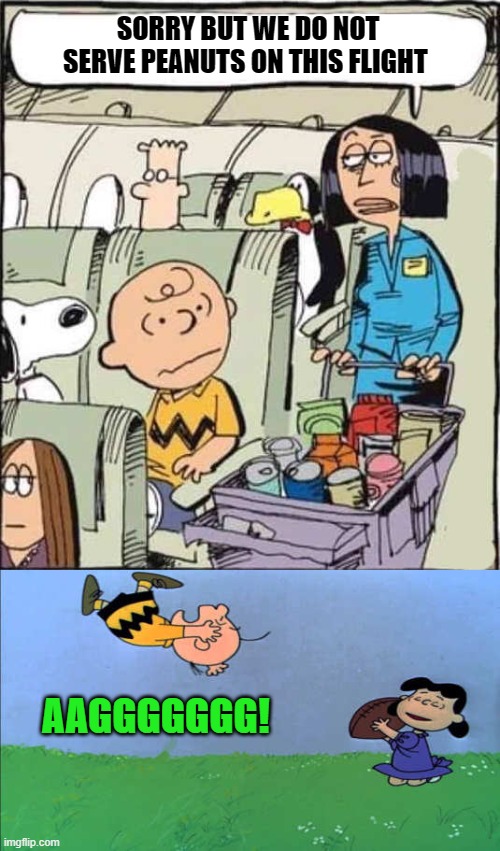Confirmed with Link: Meme/Like Thread 6 - A new season on the horizon
- Thread starter DaveG
- Start date
You are using an out of date browser. It may not display this or other websites correctly.
You should upgrade or use an alternative browser.
You should upgrade or use an alternative browser.
TaLoN
Red 5 standing by
Cardiac Jerks
Asinine & immoral
Random interesting fact. The collective term for a group of ravens is an “unkindness”.
TaLoN
Red 5 standing by
Random interesting fact. The collective term for a group of ravens is an “unkindness”.

TaLoN
Red 5 standing by
Murder of Crows
Unkindness of Ravens (also a Conspiracy of Ravens)
Gaggle of Geese
Building of Rooks
Venue of Vultures
Parliament of Owls
Tidings of Magpies
Ostentation of Peacocks
Bevy of Doves
Charm of Finches
Band of Jays
Descent of Woodpeckers
Unkindness of Ravens (also a Conspiracy of Ravens)
Gaggle of Geese
Building of Rooks
Venue of Vultures
Parliament of Owls
Tidings of Magpies
Ostentation of Peacocks
Bevy of Doves
Charm of Finches
Band of Jays
Descent of Woodpeckers
Cardiac Jerks
Asinine & immoral
I’m just shocked this wasn’t in the USA

TaLoN
Red 5 standing by
Unhinged Finn
Skunk is my spirit animal
- May 1, 2022
- 710
- 4,348
Yes. But why? Languages are supposed to make communication easier. Bird people didn't get the memo? I curse them with a descent of woodpeckers.Murder of Crows
Unkindness of Ravens (also a Conspiracy of Ravens)
Gaggle of Geese
Building of Rooks
Venue of Vultures
Parliament of Owls
Tidings of Magpies
Ostentation of Peacocks
Bevy of Doves
Charm of Finches
Band of Jays
Descent of Woodpeckers
- Feb 23, 2014
- 26,648
- 87,862
Yes. But why? Languages are supposed to make communication easier. Bird people didn't get the memo? I curse them with a descent of woodpeckers.
This, with love, yours sincererly, the Finnish speakers
Pronunciation
IPA(key): /ˈpɑrʋi/, [ˈpɑrʋi]
Rhymes: -ɑrʋi
Syllabification(key): par‧vi
Etymology 1
From Proto-Finnic *parvi, from Proto-Finno-Ugric *parwɜ or *parɜ-wɜ. Cognates include Estonian parv (“flock, group”), Ingrian parvi (“flock, group”), Veps parveh (“flock”) and Khanty пөр (pôr, “flock, group”).
Noun
parvi
group of (water or flying) animals
brood (of chickens)
flock (of birds)
muster (of peafowl)
kettle (of flying hawks)
swarm (of insects)
school (of fish or marine mammals such as dolphins or whales)
pod (of marine mammals)
gam (of whales)
cast (of crabs)
group, cluster
(astronomy) cluster
Usage notes
(group of animals): Used primarily of water animals and flying animals. See the usage notes under lauma.
- Feb 23, 2014
- 26,648
- 87,862
Error, don't see usage note under lauma. Mistake. 

Noun
lauma
group of (land) animals, herd
laumaeläin ― herd animal
band (of coyotes)
business (of ferrets)
colony (of ants)
crash (of rhinos)
flange (of baboons)
flock (of sheep)
mob (of kangaroos)
pace (of donkeys)
pack (of dogs)
pod (of seals or hippopotami)
pride (of lions)
bed (of snakes)
crowd, mob, flock, horde, rout (large uncontrolled group of people)
En halua kulkea lauman mukana.
I don't like to follow the crowd.
swarm (mass of people or animals in turmoil)
Usage notes This word is used of groups of most land animals. Exceptions include herded reindeer (tokka) and domesticated lamb and goat (katras). A group of flying or water animals is usually called a parvi (when seen three-dimensionally rather than two-dimensionally). Seals are a border case: usually a group of seals is lauma (seen as two-dimensional) but when in water, especially a small group of seals may be called parvi (seen as three-dimensional).
HydratedByStormBrew
Registered User
sabremike
Friend To All Giraffes
Unhinged Finn
Skunk is my spirit animal
- May 1, 2022
- 710
- 4,348
I'm a hockey expert... on hfboards
TaLoN
Red 5 standing by
It's not just bird people...Yes. But why? Languages are supposed to make communication easier. Bird people didn't get the memo? I curse them with a descent of woodpeckers.
Shrewdness of apes
Troop of baboons
Shoal of bass
Cauldron of bats
Sleuth of bears
Sounder of boar
Gang of Buffalo
Caravan of camels
Destruction of cats
Coalition of cheetahs
Bed of clams
Quiver of cobras
Rag of colts
Float of crocodiles
Pod of Dolphins
Parade of elephants
Mob of emus
As for why? Blame authors (mostly poets) for wanting to use more colorful language in describing different groups of animals over the past several hundred years.
Think about it, in writing something, poem or book, does it sound more interesting if you use herd or group of goats rather than writing a tribe of goats?
The writer/ author will more often lean towards the more creative and colorful side. Some of these terms get accepted into everyday language use... some don't, but they all become accepted names over long enough time even if they don't achieve everyday use.
Pride of Lions is a more recent example though, where accepted use only became official in 1930, and literally because of that, it surged to the primary common use term for Lions, when before it was accepted, group, herd or pack were all more commonly used.
Most, though official, don't reach that level of common use. Everyone is aware of murder of crows, but most still call them a flock instead.
Last edited:
zman77
Registered User
- Oct 1, 2015
- 14,317
- 37,064
zman77
Registered User
- Oct 1, 2015
- 14,317
- 37,064
sabremike
Friend To All Giraffes
sabremike
Friend To All Giraffes
Let's Go Mets!!!!!!!!!!!!!!

you know, mob of Emus makes all kinds of senseIt's not just bird people...
Shrewdness of apes
Troop of baboons
Shoal of bass
Cauldron of bats
Sleuth of bears
Sounder of boar
Gang of Buffalo
Caravan of camels
Destruction of cats
Coalition of cheetahs
Bed of clams
Quiver of cobras
Rag of colts
Float of crocodiles
Pod of Dolphins
Parade of elephants
Mob of emus
As for why? Blame authors (mostly poets) for wanting to use more colorful language in describing different groups of animals over the past several hundred years.
Think about it, in writing something, poem or book, does it sound more interesting if you use herd or group of goats rather than writing a tribe of goats?
The writer/ author will more often lean towards the more creative and colorful side. Some of these terms get accepted into everyday language use... some don't, but they all become accepted names over long enough time even if they don't achieve everyday use.
Pride of Lions is a more recent example though, where accepted use only became official in 1930, and literally because of that, it surged to the primary common use term for Lions, when before it was accepted, group, herd or pack were all more commonly used.
Most, though official, don't reach that level of common use. Everyone is aware of murder of crows, but most still call them a flock instead.
"ey, Australia, nice crops you got there, be a shame if something were to happen to them"
zman77
Registered User
- Oct 1, 2015
- 14,317
- 37,064
zman77
Registered User
- Oct 1, 2015
- 14,317
- 37,064
Well, here we are. Like it or not, we have survived this far and January 2023 memes are hitting hard. Hopefully not as hard as the last 3 years have hit us. I mean, remember back when we ended 2019…


SoupNazi
hangman’s Only Fan
- Feb 6, 2010
- 26,234
- 19,243
sabremike
Friend To All Giraffes
Users who are viewing this thread
Total: 14 (members: 0, guests: 14)









:quality(80)/granite-web-prod/60/a7/60a7b675724a489a94feb7c44e0b1d40.png)